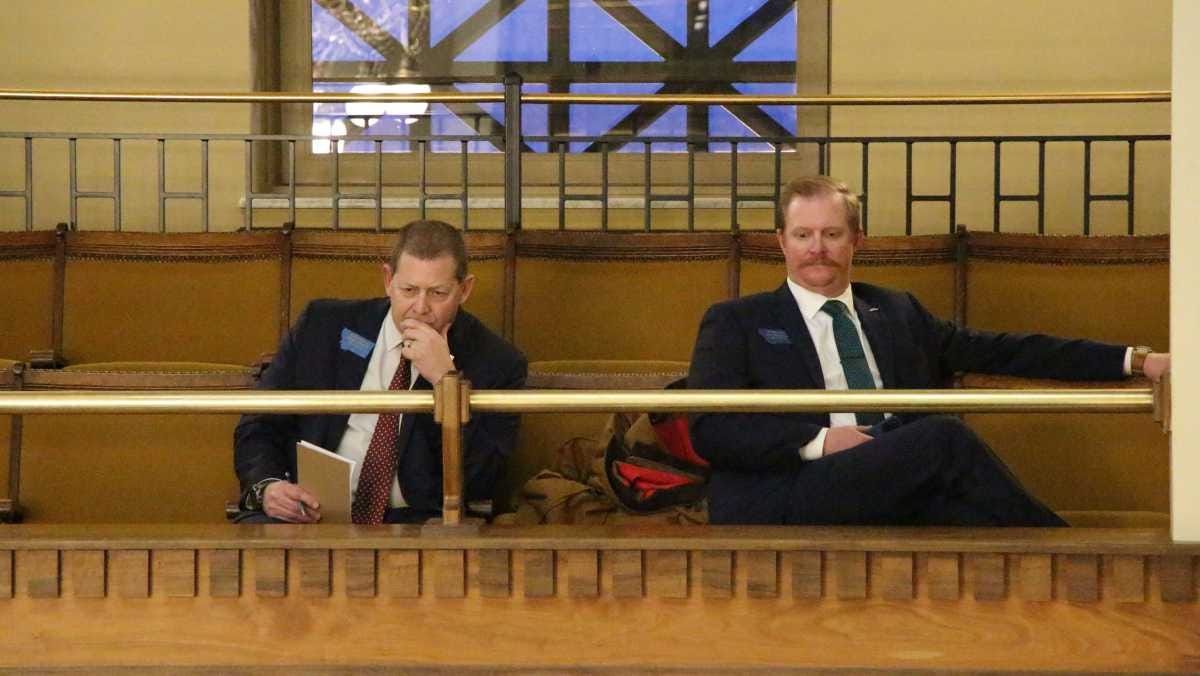State Lawmakers Vote to Renew Medicaid Expansion, with One Eye on Potential Federal Budget Cuts
Legislators have passed a bill to continue the public health coverage program for low-income adults
By Mara Silvers for Montana Free Press

Montana lawmakers gave Medicaid expansion a final stamp of approval Thursday, voting to send a bill to reauthorize the low-income health program to the governor’s desk.
But even if Republican Governor Greg Gianforte signs House Bill 245, supporters and opponents are fearful that budget cuts in Congress could make funding for the public health program unsustainable.
Montana’s expanded Medicaid program covers health care costs for adults between the ages of 18 and 65 with incomes up to 138% of the federal poverty level. It has passed and been reapproved with bipartisan support since 2015.
That trend held true this session, as the renewal bill sponsored by Representative Ed Buttrey, R-Great Falls, cleared Republican-majority committees and full chambers by comfortable margins.
Lawmakers in the state Senate on Thursday voted 30-20 to approve HB 245 on its final vote, with 12 Republicans joining all Democrats to push the bill out of the chamber. The bill passed the state House earlier in February.
Gianforte has signaled that he plans to support Medicaid expansion, which insures upward of 75,000 Montanans across the state, particularly in rural areas.
The Montana Chamber of Commerce made continuing the program a top priority of the session, as did health care industry leaders. Those and other proponents have said the program eases the burden on businesses, supports low-income workers and minimizes losses for hospitals and clinics that take care of patients who may otherwise be uninsured.
But throughout debate, a consistent portion of the Republican caucus remained firmly opposed. Some cited a personal philosophy of resisting what they framed as a dependency on government. Others said the program’s $1 billion total annual budget was untenable, even with the federal government covering 90% of the costs.
During the early February House debate, Representative Bill Mercer, R-Billings, warned against Montana and other states following the lure of endless federal support for expensive programs.
“That’s why we have the national financial picture we have because Congress has no ability to restrain themselves on this sort of thing. And we are going right down that road,” Mercer said. “Not all states have, but we’re following that road to say, ‘We want to take that free money.’ And at some point that’s got to stop.”
Other lawmakers, including Senator Carl Glimm, R-Kila, and Senator Jeremy Trebas, R-Great Falls, proposed bills to either phase out the Medicaid expansion program or attach new requirements to its renewal, citing runaway costs. Neither bill managed to pass out of the Senate chamber.
U.S. House lawmakers have proposed various budget plans that would decrease, shift or eliminate costs to be able to continue federal tax cuts passed by President Donald Trump during his first term. Some of those plans include cuts to Medicaid, which if enacted would put Montana and other states in a potential bind.
State lawmakers on the health department’s budget subcomittee, which oversees Medicaid funding, have spent several meetings deliberating how the federal government could shift the program’s costs to states.
If Montana were to shoulder roughly 38% of the cost for the expansion program — similar to how much it pays for other Medicaid programs that cover seniors and people with disabilities — legislative staff predicted the total state share would increase by about $280 million.
In a press conference Thursday shortly before the expansion bill passed its final hurdle, Gianforte called Medicaid expansion a “safety net we need in Montana.”
Having recently returned from Washington, D.C., for meetings with the Republican Governors Association and the National Governors Association, Gianforte touted having meetings with Trump and members of his cabinet, but said he did not speak with White House representatives about funding for Medicaid expansion while he was there.
“We’ll continue to advocate, but I know the channels of communication are open. As they reveal more of their plans, we’ll have the ability to provide input,” Gianforte said.



